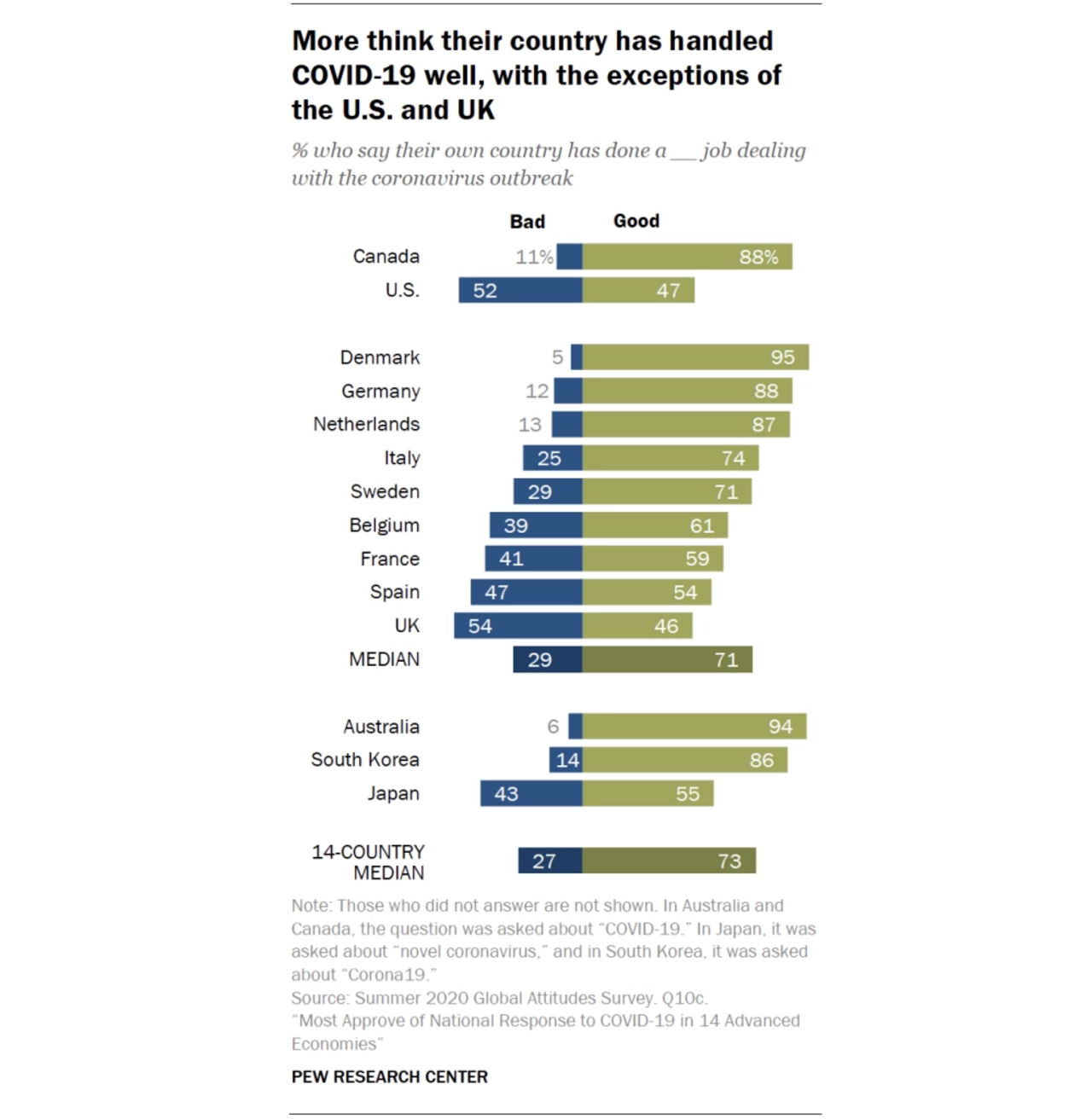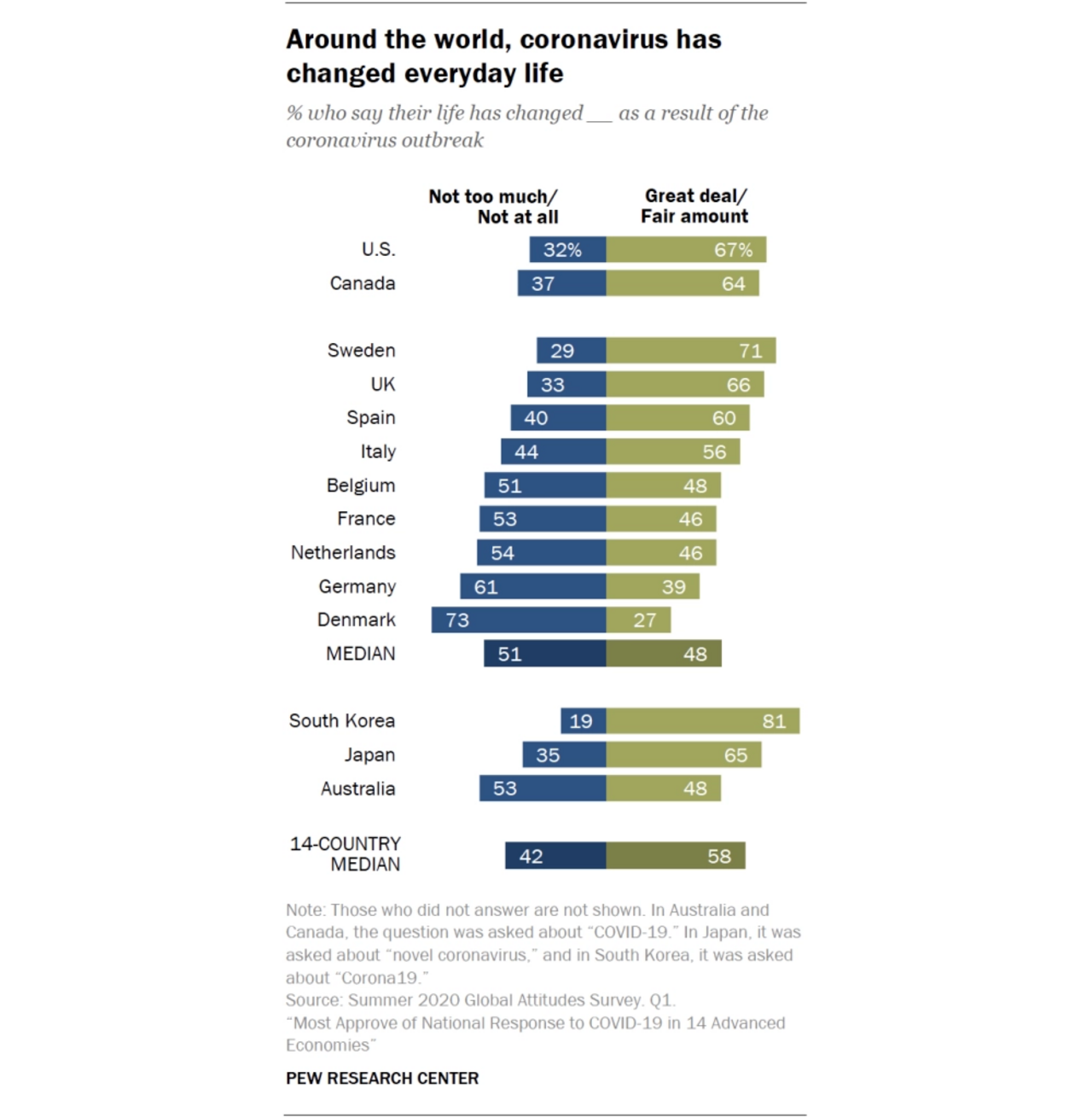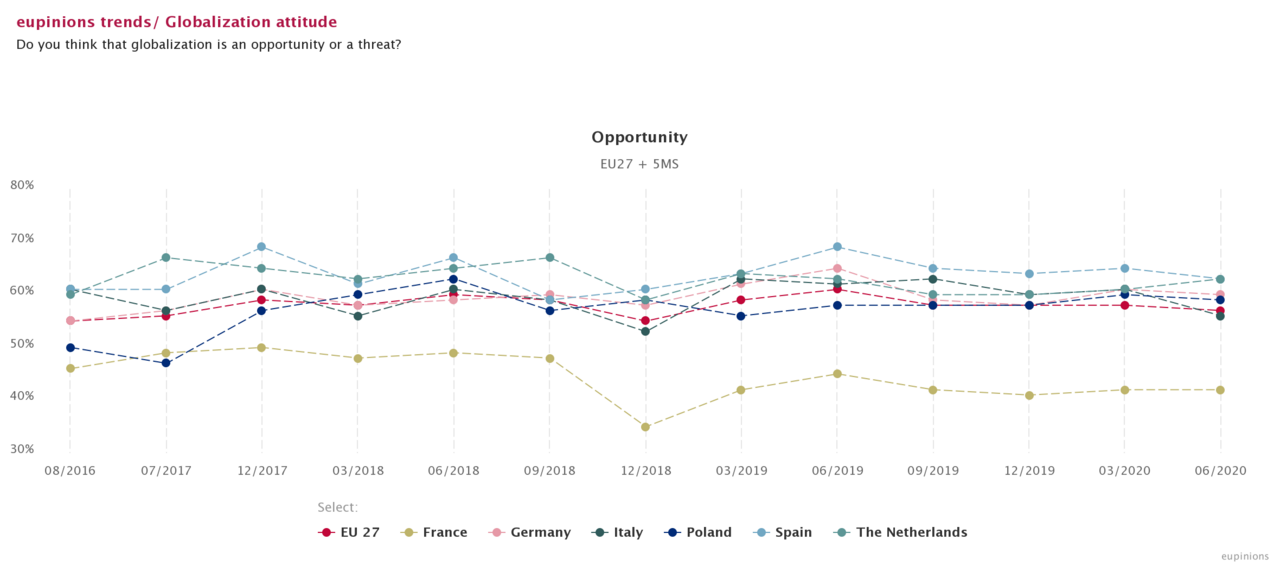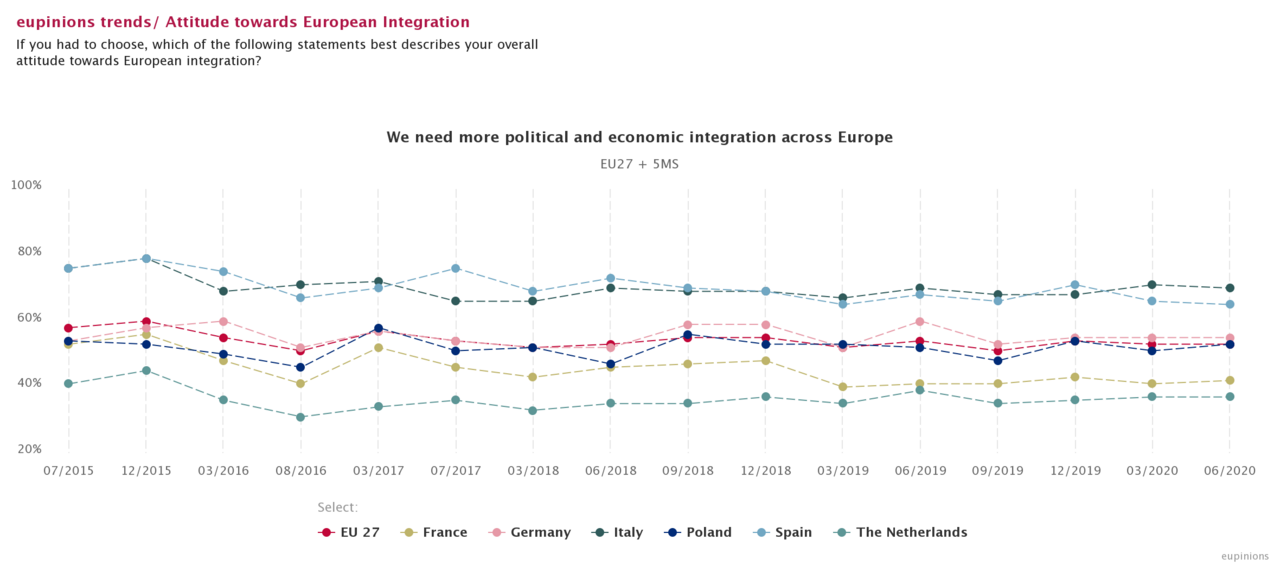Every week, surveys from all across the EU tell us what Europeans are thinking, feeling and talking about. In our segment, eupinions echo, we collect these voices and play them back to you. Each week, we highlight one survey of particular interest in a short blogpost and share daily new survey results via our website and our twitter channel.
With over 8 million currently infected people confirmed world-wide and daily new case numbers rising in many countries, the COVID-19 pandemic is far from over. Strategies to fight and contain the virus have varied starkly between different countries. Still, people in most countries are generally satisfied with their government's response to the crisis according to new data by the Pew Research Center.
In total, absolute majorities in 12 out of the 14 countries surveyed were satisfied with the way their government has handled the corona virus outbreak so far. Danes in particular think that their country has done a good job, with 95% of Danish people showing their approval. Other European countries with very high approval rates were Germany with 88% and the Netherlands with 87%, while on average 71% of Europeans were satisfied with the crisis management in their respective countries. Out of the 9 European countries surveyed, the UK was the only country where more than half of respondents (54%) stated that their country had done a bad job dealing with the outbreak. Within the selection of countries surveyed, this also makes Brits the most pessimistic about their own country's response worldwide, just ahead of the only other country with an overall negative assessment, the U.S., with 52% disapproval.






